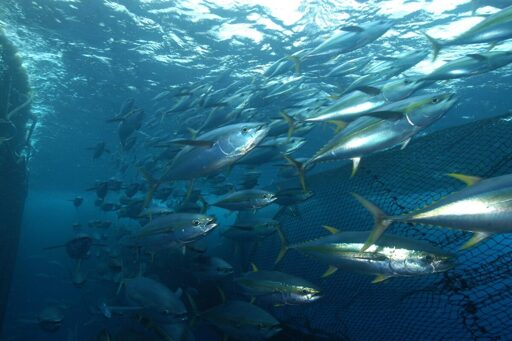Lake Chad is nearly 1,130 kilometers (700 miles) from the ocean, but Nwamaka Okeke-Ogbuafor fears it is a preview of what’s ahead for African and other tropical fisheries. Straddling four countries on the southern edge of the Sahara Desert, Lake Chad began drying up dramatically during a series of droughts in the 1970s and ‘80s. While the lake stopped shrinking in the 1990s — and it appears to be stable or even growing over the last 20 years — many fishing communities on the lake never recovered. Facing poverty and starvation, some former fishers and their families live in U.N.-funded camps for displaced people, which are running out of aid. Some struck out for a new life in other countries. Others joined Boko Haram, an Islamic insurgency organization, in a final act of desperation. “Communities are no longer cohesive — it’s a total disaster,” says Okeke-Ogbuafor, a marine social scientist focusing on tropical African fisheries. “It’s not just about food poverty, it’s the erosion of community and cultural knowledge.” Fish provide essential protein for an estimated 3.2 billion people across the world. In some developing tropical countries, fish can make up some 70% of the diet. But over the next 50 years, warming waters are certain to upend fishing communities — and rewrite the rules of ecosystems and industries worldwide. Mongabay asked five experts how fisheries will change by 2075, and what solutions could help prevent the worst outcomes. Women in Sierra Leone selling fish at the market in Tombo…This article was originally published on Mongabay
From Conservation news via this RSS feed


